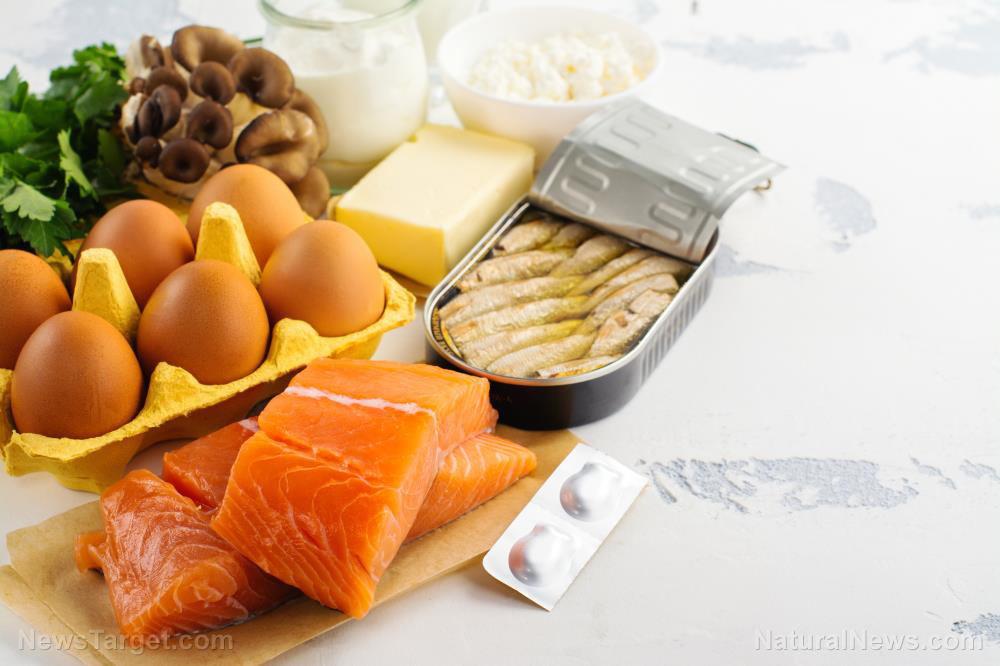
Advertisement
Vitamin B12, also known as cobalamin, is an essential B complex vitamin that aids various body functions including metabolism, blood circulation and DNA synthesis.
It also plays a crucial role in brain development. High levels of vitamin B12 are linked to improved brain functions, such as memory and concentration, and a reduced risk of cognitive disorders like Alzheimer’s disease. On the other hand, a deficiency in vitamin B12 can make you susceptible to mental fatigue, poor concentration and memory loss.
Unfortunately, the body cannot produce vitamin B12 on its own. To maintain adequate levels of vitamin B12, you have to eat plenty of foods rich in vitamin B12.
Animal liver and kidneys
Organ meats like liver and kidneys, especially from grass-fed animals like cows and lambs, are rich in vitamin B12. 3.5 oz of lamb liver provides 311 percent of the recommended dietary allowance (RDA) for vitamin B12, while veal and beef kidneys provide more than 100 percent of the RDA.
Clams
Fresh clams also provide high amounts of vitamin B12, with iron to boot. Clams are also a lean source of high-quality protein, which works alongside vitamin B12 to boost brain health and prevent dementia. You can also get vitamin B12 from shellfish like mussels, crabs and shrimp.
Sardines
When consumed fresh, this saltwater fish provides nearly 20 percent of the RDA for vitamin B12. Sardines are also rich in high-quality protein and docosahexaenoic acid (DHA), a type of omega-3 fatty acid that provides structural support to the brain.
Beef
Lean, grass-fed beef is another excellent source of vitamin B12. A 3.5 oz serving of beef can give you 5.9 mcg of the vitamin, which accounts for 245 percent of the RDA.
Whole grain cereals
Many whole grain cereals like wheat, oats and barley are fortified with vitamin B12. Most of the nutrients that you get from whole grains come from the bran and germ of the grain, which are typically removed in refined breakfast cereals.
Tuna
Another fatty fish, tuna contains high concentrations of vitamin B12. A 3.5 oz serving of tuna provides an incredible 453 percent of the RDA for vitamin B12. Tuna also provides several brain-boosting nutrients like protein, phosphorus and selenium.
Nutritional yeast
Nutritional yeast is a good vegetarian alternative to meat sources of protein and several B complex vitamins including vitamin B12. It also contains a decent amount of selenium, a trace mineral that supports brain health.
Trout
Considered one of the healthiest freshwater fishes, trout is a nutritious source of B complex vitamins, omega-3 fatty acids and high-quality protein. Like tuna, trout provides over 300 percent of the RDA for vitamin B12.
Salmon
Salmon is one of the richest sources of omega-3 fatty acids and brain-boosting micronutrients including vitamins B12, C and K. Half a fillet of cooked salmon provides 208 percent of the RDA for vitamin B12.
Raw milk
Unpasteurized dairy products like raw milk are chock-full of protein and micronutrients including vitamin B12, riboflavin, phosphorus and potassium. Other dairy products high in vitamin B12 include natural or unprocessed cheese and plain yogurt.
Plant-based milk
If you’re lactose intolerant or a vegetarian, you can opt to use plant-based milk instead, such as almond milk, coconut milk and oat milk. Like whole grain cereals, several varieties of milk substitutes are fortified with micronutrients that you would typically find in animal milk, such as vitamin B12 and calcium.
Egg
This popular protein source also provides a decent amount of B complex vitamins, especially B2 and B12. Eggs are also rich in vitamin D, an essential micronutrient that improves brain functions like memory and focus.
Vitamin B12 is an essential micronutrient that promotes brain health and guards against cognitive decline in later years. Several animal products like meat, fish and eggs contain high levels of vitamin B12. But there are also vegetarian alternatives like whole grains, plant-based milk and nutritional yeast.
Sources:
Advertisements







